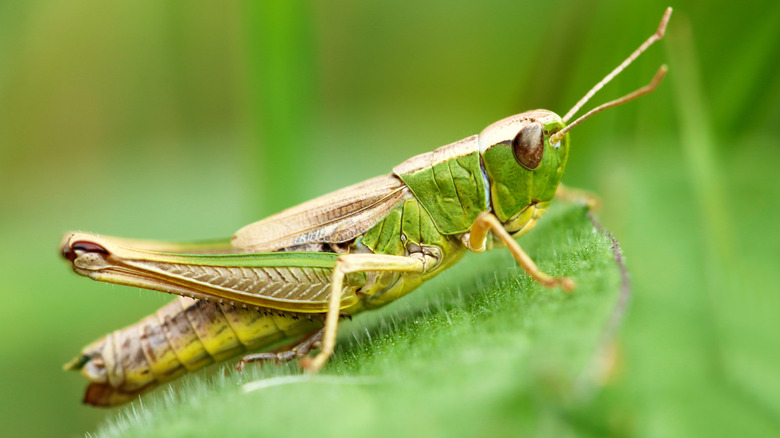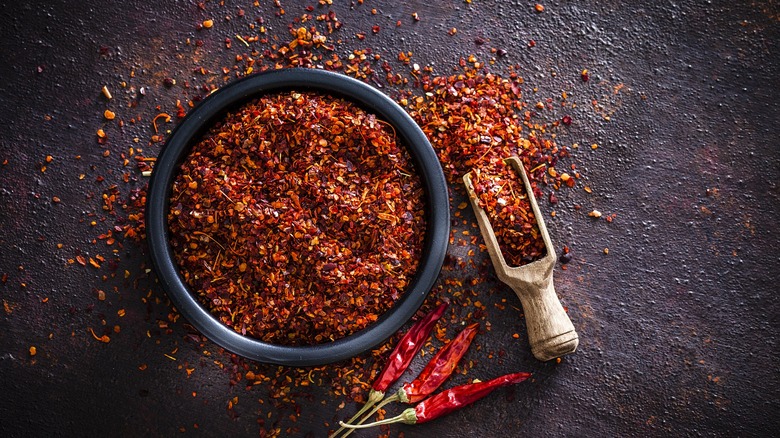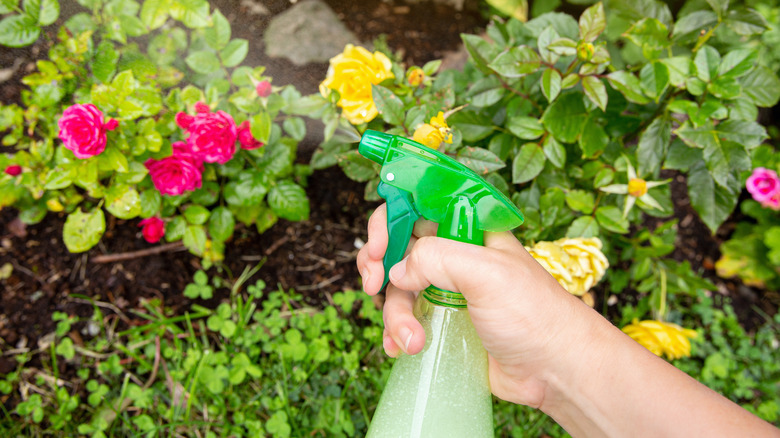Keep Crickets Out Of Your Garden With A Few Common Kitchen Staples
Besides being considerably annoying with their incessant whirring, crickets are not simply the harmless, singing, Jiminy-version portrayed by Disney. Although they rarely infest a garden, when they do, they can decimate a large amount of plants in a short amount of time. One of the main concerns is you don't want them moving from the garden into the house. Luckily, it turns out crickets aren't fond of hot chilies, of all things, and you can use them in a recipe for a cricket repellent.
Crickets are typically not harmful to people, but they do carry diseases like E. Coli, salmonella, and other parasites. Additionally, the damage they can do to property can be extensive from chewing through leather, paper, and other fabrics. Still "singing" their praises? If you were fooled, don't worry — we have some surefire ways you can keep crickets out of your garden and home with a few common kitchen staples.
Natural cricket repellent
Here we're going to make a natural cricket repellent, but we're dealing with hot stuff, so you're going to want to protect yourself with gloves, a mask, and eye protection. You can either use fresh hot chilies, or you can use hot chili powder. What you're doing is making a spray, so use about 2 cups of water and a few drops of liquid dish soap, then add the hot chili powder or fresh chilies. Add a clove of fresh garlic to pack even more of a punch. Don't spray your plants directly but towards the ground around them.
You can also make a paste using ¼ cup of chili powder or ½ cup of fresh red chilis, three or four squirts of dish soap, and enough warm water to make a thick paste. You can place it near plants or puddles of water where you might see crickets. Both of these methods work well.
Why it works
The reason these methods work to get rid of crickets is the burning of the peppers. Crickets, and most insects in general, can't stand the overwhelming smell and heat of capsaicin found in hot peppers. This active ingredient is approved as an insecticide by the EPA, and crickets will steer clear of anything holding the scent. If they come in contact with a paste or spray containing capsaicin, it can be toxic and even fatal. According to Oregon State University, capsaicin can cause damage to insect cell membranes and nervous system dysfunction. The best part is you can have peace of mind knowing you aren't dealing with harsh chemicals.
Inside the home, you can put the chili paste on strips of wax paper for easy disposal. As mentioned above, the garlic will add some extra potency to the mix, as it also works as a natural pest repellent.


